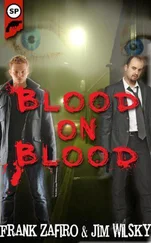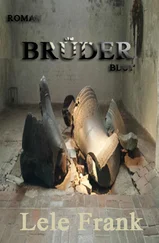Frank Tallis - Vienna Blood
Здесь есть возможность читать онлайн «Frank Tallis - Vienna Blood» весь текст электронной книги совершенно бесплатно (целиком полную версию без сокращений). В некоторых случаях можно слушать аудио, скачать через торрент в формате fb2 и присутствует краткое содержание. Жанр: Исторический детектив, на английском языке. Описание произведения, (предисловие) а так же отзывы посетителей доступны на портале библиотеки ЛибКат.
- Название:Vienna Blood
- Автор:
- Жанр:
- Год:неизвестен
- ISBN:нет данных
- Рейтинг книги:3 / 5. Голосов: 1
-
Избранное:Добавить в избранное
- Отзывы:
-
Ваша оценка:
- 60
- 1
- 2
- 3
- 4
- 5
Vienna Blood: краткое содержание, описание и аннотация
Предлагаем к чтению аннотацию, описание, краткое содержание или предисловие (зависит от того, что написал сам автор книги «Vienna Blood»). Если вы не нашли необходимую информацию о книге — напишите в комментариях, мы постараемся отыскать её.
Vienna Blood — читать онлайн бесплатно полную книгу (весь текст) целиком
Ниже представлен текст книги, разбитый по страницам. Система сохранения места последней прочитанной страницы, позволяет с удобством читать онлайн бесплатно книгу «Vienna Blood», без необходимости каждый раз заново искать на чём Вы остановились. Поставьте закладку, и сможете в любой момент перейти на страницу, на которой закончили чтение.
Интервал:
Закладка:
Vienna Blood
Frank Tallis
Part One
1
The Italian lunged forward. He was a small, lean man, but very muscular. Any disadvantage he suffered because of his lack of height was amply compensated for by his sharp eye and astonishing speed.
Liebermann successfully deflected the foil's thrust but lost his balance. He was unable to produce a counterattack and his opponent advanced yet again. The tip of the Italian's foil came perilously close to the protective quilting over Liebermann's heart. Recovering his footing, Liebermann chose to make a passe-darting behind the Italian and taking a few steps backward. A trickle of sweat slid down his hot cheek. The Italian shrugged and walked away, flexing his foil in a gesture of indifference. After a few paces he swung around and adopted the preparatory stance, his chin tilted upward in an attitude of arrogance. Liebermann edged forward.
The Italian seemed to relax, his foil wilting a little in an apparently weaker grip. Liebermann noticed the subtle change and struck. A violent brassy clang was followed by the shriek of scraping metal: the Italian's foil yielded, offering no resistance. Liebermann congratulated himself, believing that he had taken his opponent by surprise-but the concession was merely tactical. The Italian's blade deftly flicked around Liebermann's, displacing it with a powerful grazing action, and, once again, the tip of his opponent's foil effortlessly penetrated Liebermann's defenses. Liebermann retreated, executing a series of deflective maneuvers that barely contained the Italian's renewed fierce attack.
They circled each other, occasionally touching blades in glancing contact.
“You should have anticipated my froissement, Herr Doctor,” said the Italian gruffly. He tapped his temple and added: “Think, Herr Doctor! If you do not think, all is lost.”
Liebermann examined the blank oval of Signore Barbasetti's mask, eager to observe some mark of humanity-a conciliatory expression or the glimmer of a smile, perhaps. The mesh, however, was impenetrable.
Their foils clashed again-blades flashing in a shaft of early-morning sunlight. A swarm of lazy dust motes was sucked into a miniature cyclone of displaced air.
Barbasetti produced a feint, switching from one line of attack to another, forcing Liebermann to draw back. However, the young doctor retained his composure and made a move that he intended should fail, thus provoking a predictable and powerful thrust from Barbasetti. Liebermann dodged and struck the forte of the Italian's foil as he stumbled past-Barbasetti almost lost his grip.
“Bravo, Herr Doctor,” Barbasetti said, and laughed. “An excellent falso!”
“Thank you, signor.”
Barbasetti came to a halt and lifted his blade, scrutinizing it closely. “Please excuse me, Herr Doctor.”
Barbasetti walked to the other side of the drill hall and pressed the hilt of his foil against the surface of a battered wooden table. He then hung a small iron weight from the tip and watched the metal blade bend. Its gentle curvature elicited an equivocal grunt from the watchful Italian.
“Is everything all right, signor?” Liebermann asked.
“Yes, I think so,” Barbasetti replied. The Italian raised himself up, marched back, and warned his student: “En garde.”
Immediately they were engaged, Liebermann's foil sliding along his opponent's blade until the hand guards crashed together. The fencing master pushed and Liebermann was thrown back: he landed awkwardly, but was nevertheless able to execute an impressive flying parry.
Barbasetti disengaged. “Much better.”
Liebermann noticed that the button at the end of his foil was trembling-he was feeling tired. After his lesson, he would have coffee and croissants in the little coffeehouse close to the Anatomical Institute. He would need something in his stomach to keep him going…
“En garde!” Barbasetti barked again. The Italian had noticed that his student's mind had begun to wander. Liebermann was astonished by the fencing master's insight.
Again their blades connected, and the plangent clatter of contending steel filled the hall. Liebermann thought that Signore Barbasetti was tiring too. His pace had slackened slightly and his movements were less balletic. The Italian deflected Liebermann's lunge, but failed to resume his guard. Observing the exposed chest protector, Liebermann recognized a rare opportunity. Excited by the prospect of victory, he raised his foil, ready to strike.
But the blow was never delivered.
His body froze, paralyzed by the inexplicable pressure that he felt against his heart. Dropping his gaze, he contemplated the tip of Signore Barbasetti's foil, which had found its home precisely above the intercostal space separating ribs five and six.
Barbasetti pushed, and the cold steel curved upward.
“I don't understand,” said Liebermann.
“You were not concentrating, Herr Doctor,” said the Italian. “Such an error would certainly lose you a competition… and of course, in some circumstances, your life.”
Barbasetti lowered his foil and then raised it in salute.
Liebermann returned the gesture politely. In spite of the fencing master's dramatic declaration, the young doctor was ashamed to find that he was still thinking of the little coffeehouse near the Anatomical Institute: crisp flakes of buttery pastry, a pot of plum jam, and a cup of very strong black coffee.
2
Detective Inspector Oskar Rheinhardt followed a path that led upward through wooded parkland. He glanced over his left shoulder and saw part of the Schonbrunn Palace through the trees. It was a bright cold morning and the rotting leaves were crisp with ice. They made a satisfying crunch beneath his boots.
Rheinhardt had not been to the zoo in years. As he progressed, he was reminded of the time when his daughters were very little-a time when he had been a frequent visitor. He remembered Mitzi's eyes widening at the approach of a lion, and Therese, laughing at the chattering monkeys. The memories flooded back, happy memories, as bright and colorful as a picture book. Rheinhardt smiled inwardly, but his recollections were shadowed with guilt and regret. Being a detective inspector was encroaching more and more on his personal life. If he wasn't investigating, there was always the paperwork-the endless form-filling and report-writing. How could he possibly find time to take his daughters to the zoo?
A cast-iron gate loomed ahead. As he approached, he recognized the spindly wide-spaced gold lettering that curved over the archway: Tiergarten. Beneath it stood a stout man in a long winter coat. He was smoking, pacing, and occasionally stamping his feet. When he caught sight of Rheinhardt, he stopped and waved-a somewhat redundant signal as Rheinhardt was in no danger of missing him.
“Thank God you've come,” the man called out, stepping forward and taking a few steps down the slope.
Rheinhardt smiled and felt obliged to quicken his pace.
“Herr Pfundtner?” The man nodded. “Inspector Rheinhardt.”
They shook hands.
“Thank you for coming so quickly,” said the zoo director. “Please, this way…” He set off at a brisk pace and immediately started talking.
“I've never seen anything like it. I can't think who would have done such a thing. It's appalling. So utterly senseless that I can hardly believe it's happened.” Pfundtner raised his hands in a gesture of incomprehension and shook his head. “What am I to do? We'll never be able to replace Hildegard. We'll never find such a fine example of Eunectes murinus again! She was a favorite of the emperor's, you know. He'll be devastated.”
The two men marched past the tiger enclosure. One of the beasts lumbered toward them, pressing its nose up against the bars.
Читать дальшеИнтервал:
Закладка:
Похожие книги на «Vienna Blood»
Представляем Вашему вниманию похожие книги на «Vienna Blood» списком для выбора. Мы отобрали схожую по названию и смыслу литературу в надежде предоставить читателям больше вариантов отыскать новые, интересные, ещё непрочитанные произведения.
Обсуждение, отзывы о книге «Vienna Blood» и просто собственные мнения читателей. Оставьте ваши комментарии, напишите, что Вы думаете о произведении, его смысле или главных героях. Укажите что конкретно понравилось, а что нет, и почему Вы так считаете.












